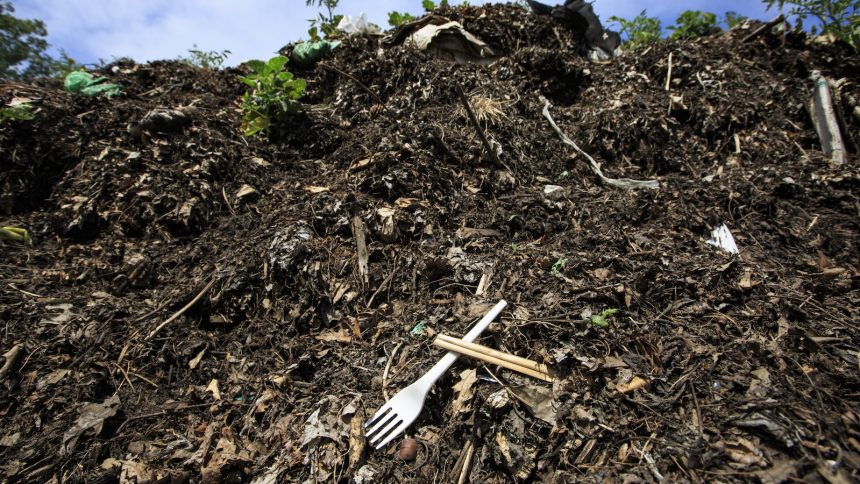When A1 Organics made the decision last year to no longer accept pizza boxes, cutlery, and other certified-compostable foodware from Denver residents, it caused quite a stir on Reddit. Users expressed disappointment, with one commenting, “Damn, I was looking forward to occasionally composting plates.” However, the real concern for many was the reason behind Colorado’s largest composter’s decision to make the change. A notice published by A1 in February 2023 revealed that 10 percent of the material they were receiving was too contaminated to be effectively processed. This contamination included regular plastic trash, such as bags, cutlery, and packaging, that resembled certified-compostable products but were not actually compostable.
Contamination is a significant issue faced by the organic waste recycling industry, A1 noted in a press release. As of April 1 of the prior year, the company announced it would only accept food waste, yard trimmings, and a specific type of certified-compostable 3-gallon bag for food scraps collection. This situation highlighted the confusion surrounding consumer products made from bioplastics, which are typically green-tinted and labeled with terms like “compostable” or “biodegradable.”
The challenge with these products is that the labeling is not regulated, leading to potential contamination issues for composters. Some composting facilities have decided to stop accepting compostable consumer goods altogether due to high contamination rates. However, some states, including Colorado, have implemented truth-in-labeling laws to clarify which products are truly compostable and how they should be labeled. The hope is that these laws will help reduce contamination and ensure the quality of the finished compost.
While truth-in-labeling laws are a positive step, composters emphasize the importance of reducing single-use packaging overall and promoting reusables as the primary option. Curbside composting aims to reduce methane emissions from landfills by diverting food waste, making it a vital climate solution. The challenge now lies in ensuring that compostable packaging and foodware do not overshadow the primary goal of diverting food waste from landfills.
Composters are hopeful that with the implementation of truth-in-labeling laws, contamination issues will be reduced, leading to better-quality compost and improved public health. In the absence of a broader shift away from single-use products, these laws provide a stepping stone towards a more sustainable future for composting facilities.





